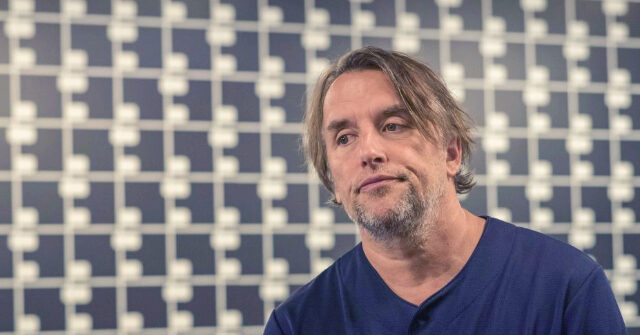Oscar-nominated director Richard Linklater, who delivered hits like Dazed and Confused as well as the Before Sunrise series, lamented that the tech industry’s takeover of Hollywood essentially destroyed great filmmaking by turning it all into a game of algorithms.
Speaking with The Hollywood Reporter (THR), Linklater said that the “last good era for filmmaking” has ended, with movies essentially being reduced to “advanced delivery systems for advertising.”
“It feels like it’s gone with the wind — or gone with the algorithm,” Linklater said. “Sometimes I’ll talk to some of my contemporaries who I came up with during the 1990s, and we’ll go, ‘Oh my God, we could never get that done today.’ So, on the one hand, selfishly, you think, ‘I guess I was born at the right time. I was able to participate in what always feels like the last good era for filmmaking.’ And then you hope for a better day.”
Linklater said that film distribution has “fallen off” and fears that the new generation no longer values cinema or great filmmaking.
“I have a film society and I run into so many young, cinema-loving kids who have the Criterion Channel and they watch all kinds of amazing movies. But I know that, culturally, that’s an exception,” he said. “I fear that there’s not enough of a critical mass in the culture to sustain what was.”
“But who knows? I don’t think I have any deeper analysis than anyone else would, and it’s not in my nature to make huge statements about whether it’s all over. I just feel we’re all treading water and hoping we don’t drown. Challenging times are certainly here,” he added.
Linklater doubted that cinema would ever climb back into the “prominence it once held,” adding that the writing was on the wall when the industry started referring to movies as “content.”
“It’s hard to see cinema slipping back into the prominence it once held. I think we could feel it coming on when they started calling films ‘content‘ — but that’s what happens when you let tech people take over your industry,” he said.
“It’s hard to imagine indie cinema in particular having the cultural relevance that it did. It’s hard to imagine the whole culture is going to be on the same page about anything, much less filmmaking,” he added.
Linklater said movies will likely become more like literature, occupying a space in the culture while not enjoying the dominance they once had.
“It’s really all of our modern cultural life. You could say the same things about reading books. A lot of young people can’t really read a book, because they’re just on their phones,” he said.
“Some really intelligent, passionate, good citizens just don’t have the same need for literature and movies anymore,” he added. “It doesn’t occupy the same space in the brain. I think that’s just how we’ve given over our lives, largely, to this thing that depletes the need for curating and filling ourselves up with meaning from art and fictional worlds. That need has been filled up with — let’s face it — advanced delivery systems for advertising. It’s sad, but what can you do?”
Not going out on a dark note, Linklater encouraged artists to keep expressing themselves.
“So, in your own area, you just have to persist and do what you can on behalf of the things that you believe in. You have to believe that everything can change and that things can go back to being a little better. Isn’t that what we all want for everything these days, from democracy on down? Can’t we just go back to being a little better?” he concluded.
Paul Roland Bois joined Breitbart News in 2021. He also directed the award-winning feature film, EXEMPLUM, which can be viewed for FREE on YouTube or Tubi. A high-quality, ad-free stream can also be purchased on Google Play or Vimeo on Demand. Follow him on Twitter @prolandfilms or Instagram @prolandfilms.


